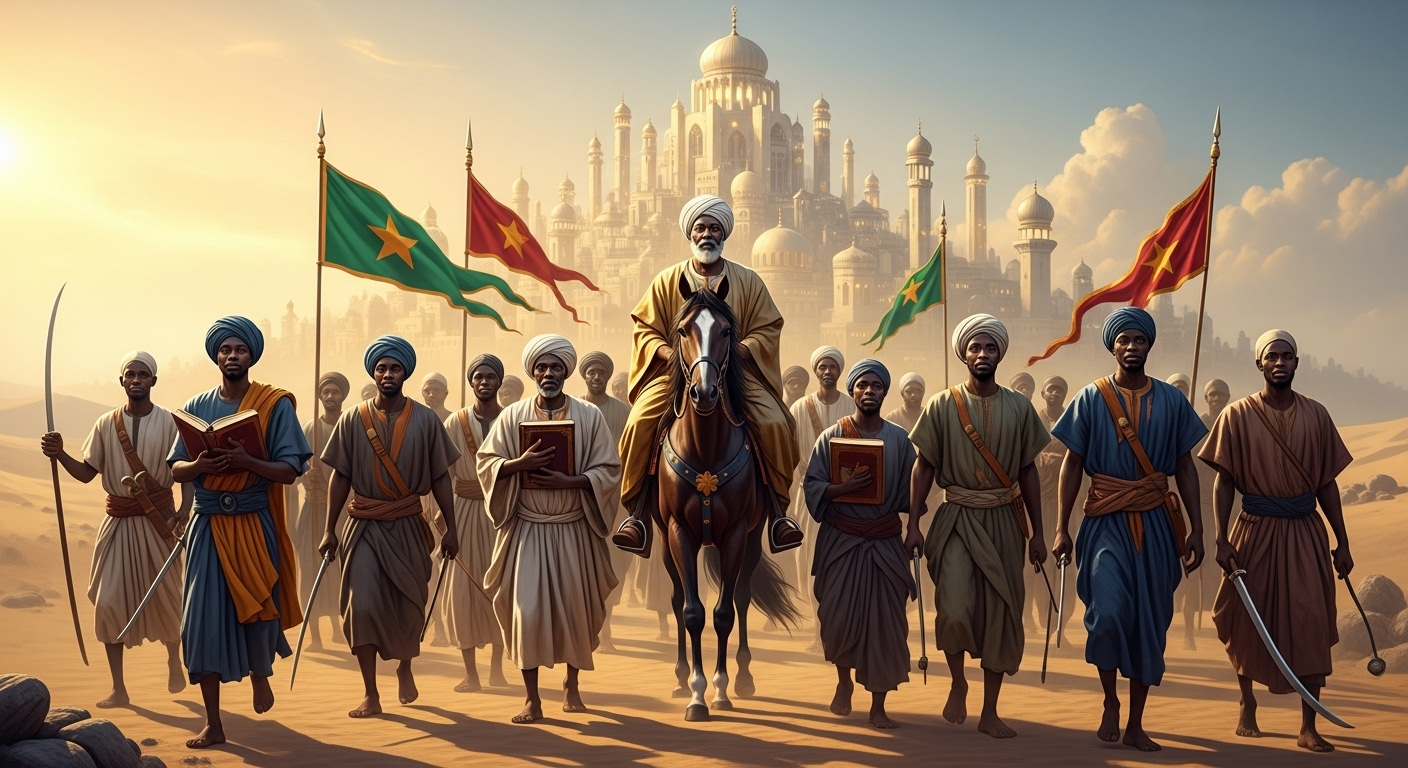Before there was Nigeria, there were kingdoms. Mighty empires. Civilizations so advanced, their systems rivaled the great powers of Europe. They had cities, scholars, kings, warriors, and art that stunned the world.
But over time, colonizers buried this past. Today, Nigeria stands as one nation, but its blood flows from five ancient powers. Watch the cinematic breakdown below, and read on to uncover the hidden truth.
1. The Oyo Empire: Riders of Thunder
Oyo wasn’t just a kingdom; it was a federation. Led by the Alaafin (king) and governed by powerful nobles, Oyo balanced power through a political system far ahead of its time. It imported horses from the Sahel and ruled the savanna with cavalry forces unmatched in West Africa. Its capital, Old Oyo (Oyo-Ile), was a political and economic hub, with vast trade routes dealing in leather, ivory, kola nuts, and slaves.
But Oyo was more than war. The Ifa oracle guided decisions, the Egungun festivals honored ancestors, and Yoruba culture thrived. Though weakened by rebellion and Fulani invasions in the 1800s, Oyo’s spirit lives on in the Yoruba people and the lands they still call home.
2. The Benin Kingdom: The Bronze Walls
Rooted in the 11th century and rising to power by the 15th, Benin was a superpower. Its capital, Edo (now Benin City), had straight roads, drainage systems, and walls so massive they rivaled the Great Wall of China in length.
But it was the Benin Bronzes that stunned the world — brass plaques and statues cast with lost-wax techniques, depicting Obas (kings), rituals, and epic scenes. When Europeans first saw them, they couldn’t believe they came from Africa.
For centuries, Benin controlled its destiny. But in 1897, after a British delegation was killed entering Benin territory, the British launched a brutal invasion — the Punitive Expedition. Benin City was looted and burned. Thousands of sacred bronzes were stolen and now sit in European museums. But Benin’s art, pride, and spirit still pulse through southern Nigeria today.
3. The Sokoto Caliphate: Empire of the Book
In the early 1800s, a Fulani scholar named Usman dan Fodio led a religious revolution. Tired of corruption and injustice in the Hausa kingdoms, he launched a jihad not just of war, but of reform.
The result was the Sokoto Caliphate — a massive Islamic empire that covered modern-day northern Nigeria and beyond. It was built on faith, education, and law. Sokoto boasted Qur’anic schools, libraries, and some of the highest literacy rates in Africa. Emirs governed regions under the leadership of the Sultan in Sokoto.
In 1903, the British used superior weapons and political deceit to conquer Sokoto. But its influence remains: the Sultan still serves as a spiritual leader, and northern Nigeria still reflects the Caliphate’s legacy.
4. The Kanem-Bornu Empire: Desert Kings
Dating back to the 9th century, Kanem-Bornu controlled lands around Lake Chad for nearly 1,000 years. Its rulers, known as Mai, were Islamic kings who commanded vast trans-Saharan trade networks that moved salt, slaves, textiles, and horses.
They dealt diplomatically with North African powers, sent pilgrims to Mecca, and built a thriving academic culture. After internal strife in the 14th century, Bornu rose from Kanem’s ashes, growing even stronger under leaders like Mai Idris Alooma.
It built canals, courts, and armies that used imported firearms. Though left out of modern history books, its legacy still lingers in the traditions and conflicts of Nigeria’s northeast.
5. The Nri Kingdom: Priests of Peace
Founded by the Igbo, the Nri Kingdom wasn’t built by warriors — but by priests. Starting in the 10th century, the Eze Nri (priest-king) ruled through ritual, not force. They traveled to cleanse taboos, settle disputes, and sanctify leaders.
Nri rejected slavery and bloodshed, instead embracing peace, justice, and spiritual balance. Their belief system focused on ancestral guidance, harmony with the earth, and sacred traditions.
But with the rise of colonization and the trans-Atlantic slave trade, Nri’s peaceful influence weakened. Still, its memory lives on in Igbo traditions and the eastern heartbeat of Nigeria.
The Truth Buried
Through force, deceit, and treaties, the British merged these kingdoms into one colony. Different languages, religions, and systems were forced under one name: Nigeria.
Some resisted. Some fell. Some adapted. But none were erased entirely. Their bones lie beneath our cities. Their wisdom in our names. Their stories in our blood.
To understand Nigeria, we must remember what came before.
These weren’t just tribes.
These were nations.
And their voices, though forgotten… are rising again.
Watch the full video now and help share their legacy:
Find Verified News At Your fingertips Click The Button Below

